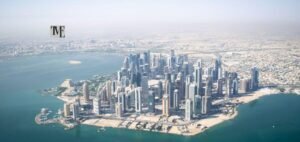The Arab world is going through an extraordinary change and is fast losing its reliance on oil and becoming diversified and innovation-driven economies. In nations such as the United Arab Emirates, Saudi Arabia, Qatar, Bahrain, and Oman, governments are actively initiating inclusive national strategies, such as Saudi Vision 2030 and UAE Agenda 2031, to promote sustainable growth by means of business-friendly policies, sectoral liberalization, and colossal investments in infrastructure.
This blog is a summary of the latest list of the Best Arab Countries to invest in and conduct business. It points out how countries like the UAE, Saudi Arabia, Qatar, Bahrain, and Oman are moving their economies out of oil dependence with ambitious national policies, incremental reforms, and colossal infrastructure projects.
Why These Countries Are Attractive for Business and Investment
The factor that makes these best Arab countries so business and investment-friendly is particularly their solid adherence to extensive, long-term reforms in response to the realities of contemporary markets. Governments have been undertaking significant regulatory reforms in the region, including some ambitious visa schemes and open tax regimes, simplified company formation and licensing procedures, which are opening the way to international entrepreneurs and corporate investors to start up and grow their operations.
Such progressive reforms go beyond administrative adjustments to building world-class infrastructure, digitalization of government and financial services, and the creation of industry-specific economic zones based on high-growth areas such as artificial intelligence, renewable energy, healthcare, and advanced manufacturing. There are also other appealing elements like taxation benefits, 100 percent foreign ownership in most sectors, well-developed free zone ecosystems, and liberal residency options, which all reduce barriers and foster the establishment and growth of business.
National policies such as the Vision 2030 of Saudi Arabia and the current economic transformation of the UAE create some of the world’s most supportive environments that blend fiscal conservatism with inexorable innovation, promoting development in non-oil sectors. These modernizations are accompanied by measures to foster the inclusion of local talents, gender diversity, and being digital-first, to ensure the region is still world-competitive and, at the same time, highly attractive to both multinational companies and startups.
The Motivation for Expanding Business
Business expansion has become a key goal for the Best Arab Countries as they endeavor to future-proof their economies in a fast-evolving international environment. The focus is on economic diversification to minimize overdependence on oil incomes in such locations as the UAE, Saudi Arabia, Bahrain, and Qatar. These countries promote innovation, foreign direct investment, and the development of industries such as technology, tourism, finance, and renewable energy, all of which are critical to sustainable growth and economic resilience by establishing conducive business and investment environments.
Additionally, visionary policies aim at the establishment of employment, the development of local talent, and enhancing the competitiveness of home industries such that regional economies can rise as global business and financial centers. The Best Arab Countries are exploring ways to make cities such as Dubai, Riyadh, Doha, and Manama key entrances to Europe, Asia, and Africa by enhancing infrastructure, offering investment benefits, and initiating specific programs, such as the schemes of the Golden Visa and the Golden Licences.
Best Places for Investment
United Arab Emirates: Dubai and Abu Dhabi are at the top of the list with zero personal income taxes, a comparatively low 9 percent federal corporate tax, and more than 40 Free Zones with 100 percent foreign ownership and tax holidays, particularly in technology, financial services, logistics, and renewable energy. The UAE Golden Visa program is an initiative that opens the door to residency through real estate or business investment. It has an ideal location and well-established infrastructure that has attracted both multifunctional headquarters and start-ups.
Saudi Arabia: The biggest economy in the region, where mega-projects such as NEOM and the Red Sea Project are developed, has great construction, tourism, technology, renewable energy, and health opportunities. The drive of economic diversification, 100 per cent. Foreign ownership of most sectors, the simplification of licensing, huge government grants, and a zero personal income tax, which comes with Vision 2030, make it attractive. The corporate tax, however, is higher (20% on profit owned by foreign people), and the business environment is a little conservative than the UAE.
Qatar: Qatar has a strong gas industry but also has low (10 percent) corporate taxes and no personal or wealth taxes, simple residency through property investment, and significant incentives to companies in its Free Zones and financial centers. The infrastructure development after the World Cup increases logistics, tourism, and technology opportunities.
Bahrain: Bahrain has the best ease of business establishment, no taxes on the majority of corporate profits, full foreign ownership, a skilled labor force, and a low cost of company formation in the Gulf. Its Economic Vision 2030 targets ICT, financial services, tourism, logistics, and manufacturing. There is an option of real estate investment that offers long-term residency.
Oman: Gaining appeal to SMEs, Oman combines economic openness with state incentives for manufacturing, green energy, logistics, and tourism. It also has lower business costs and barriers to entry when compared with other Gulf states, meaning it can grow faster.
Target Audience for Investment Opportunity
The most promising countries to invest in are the Best Arab Countries, including the UAE, Saudi Arabia, Qatar, Bahrain, and Oman; they represent the most attractive destinations to a wide range of investors, such as entrepreneurs and tech, fintech, and digital services startups; real estate developers interested in massive infrastructure initiatives; and those interested in the sectors of finance, logistics, healthcare, sustainable energy, and tourism.
The strategic benefits of the world-class regulatory systems and business-friendly markets in these countries will be of interest to corporations seeking to open Middle East headquarters or increase their presence in African and South Asia markets.
Individual and institutional investors enjoy the advantage of easy market entry, strong legal frameworks, 100 percent foreign ownership in most zones, and even desirable residency policies-but it is important that larger firms consider meeting local hiring requirements (such as Saudi “Saudization”) and industry-specific provisions to maintain long-term expansion in these Best Arab Countries.
Conclusion:
The UAE, Saudi Arabia, Qatar, Bahrain, and Oman are the five Best Arab Countries to conduct business and investment in 2025, with sweeping economic reforms, strategic geographic location, and ambitious national development agendas that make them regional leaders in open market opportunities.
By exploiting these markets, entrepreneurs and investors can also enjoy better infrastructure, a variety of incentives that are specifically tailored to meet their requirements, and highly dynamic and expanding industries, coupled with simplified regulations, clear legal frameworks, and favorable residency deals. Investors and businesses can achieve exceptional returns provided that they negotiate the complexities of the local market, regulatory obstacles, and cultural quirks long enough to achieve success in the long term.
Read Also: Engineering Excellence: Unveiling the Secrets of Aviation & Aerospace Technology





